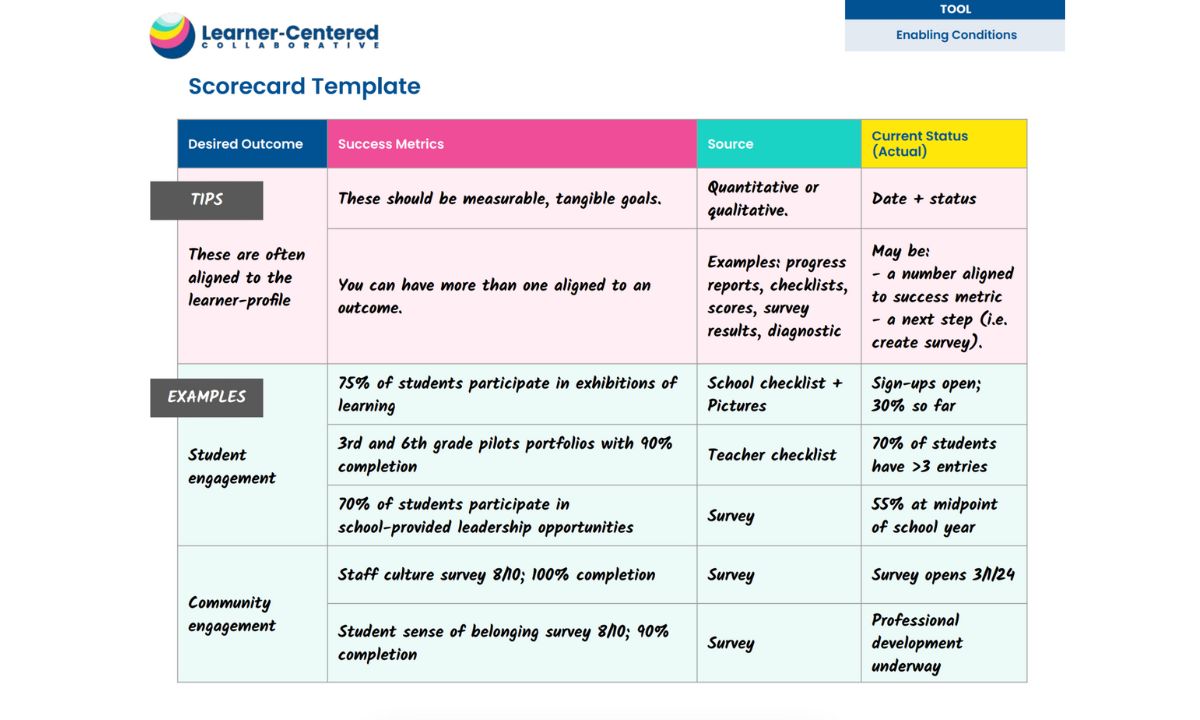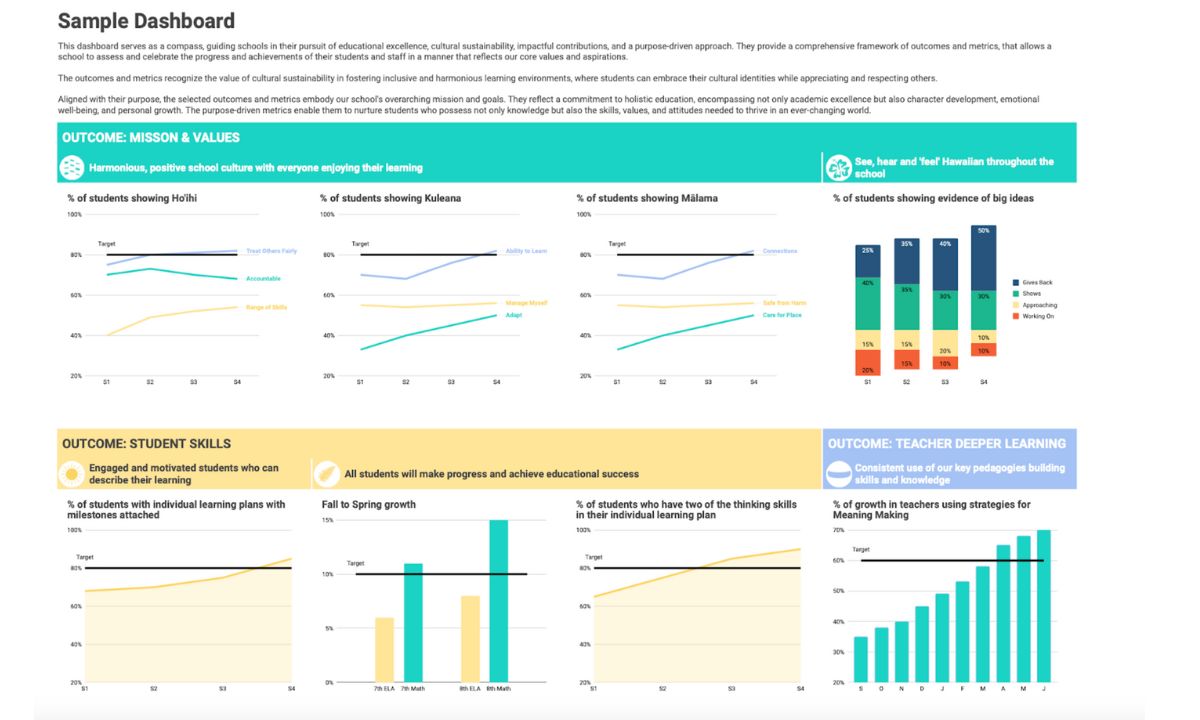Helping Schools and Districts Expand Their Definition of Student Success
Vodicka & Martin: Locally defined accountability models can include problem solving, collaboration & communication, whole-child outcomes and academics

Get stories like this delivered straight to your inbox. Sign up for The 74 Newsletter
As educators and researchers, we have been engaged in conversations with national education leaders on assessment and accountability for decades. We have studied what families and communities want from these systems. And we have read and re-read current and past education policy.
Through it all, we believe this post-COVID, tech-accelerated world needs a pragmatic approach to accountability, one that measures conventional academic attainment and adds critical social-emotional and career skills to the mix. Most importantly, this approach must honor the unique strengths and opportunities each community faces and ensure all its voices are heard, including students, families, teachers, administrators, and business and local leaders.
We call this approach Accountability Plus.
Over the last three years, our organization, Learner-Centered Collaborative, has partnered with over 150 schools and districts across the United States to rethink what success means for their students. We help each district and its community — the school board, business leaders, families, staff and students — generate a unique vision for success and systems for tracking, celebrating and communicating what students have achieved.
These locally defined accountability models expand the definition of success to emphasize real-world skills like problem solving, collaboration and communication, as well as whole-child outcomes like physical, mental,and emotional well-being, while maintaining an emphasis on growth in math, reading and other academic subjects. School systems then track student progress through competency-based assessment methods like performance tasks and portfolios, not just standardized tests.
Logan County Schools in Kentucky is a great example of what is possible when both state and district policies are oriented to the whole child and measure what matters. As a member of the Kentucky Department of Education’s Local Laboratory of Learning, the district has been designing and testing a local accountability model that focuses on measuring four “Pillars of Success” — student performance, growth, readiness and well-being — through state testing, classroom observation and school climate survey data.
This model doesn’t ignore standardized test scores, but uses them as one of multiple measures. It is powerful to see communities determine what matters most and hold themselves accountable to getting there using a process that tells a more complete story.
Another example involves the Hawai’i State Public Charter School Commission. Learner-Centered Collaborative and several other consulting organizations have been engaged with a network of Hawai’ian-focused charter schools created to integrate Hawai’ian culture, language and identity.
Our engagement with these schools began with a review of their vision, mission and values to ensure clarity of purpose. From there, we helped them develop one-page scorecards that are specific to each school. Each provides a high-level overview of desired success metrics (e.g. 70% of students participate in school-provide leadership opportunities) as well as where the data will be sourced from (e.g. student surveys) and how well the school is is attaining specific outcomes (e.g. 55% of students participated in first semester).
In Hawai’i, the metrics also include a strong cultural identity, social-emotional skills such as collaboration and adaptability, and academic measures like reading and math.
We are now creating dashboards to help educators visualize their schools’ results and brainstorm ways to improve them.
The key is that they are not seeing tests as the sole focus of their efforts. Instead, they are emphasizing ongoing assessment and continuous improvement based on the data collected through their expanded set of metrics. This is a model that can be adapted for any community.

We and our partners are not the only ones answering the call for a pragmatic approach to accountability. Action is being taken in communities across the country where there is a clear dissatisfaction with the industrial-era model of education and its legacy accountability system.
Getting started takes only belief in two things: that every school has the ability to listen to students and the broader community, and that it can redefine success and establish shared goals for accountability around metrics that matter.
In a recent letter, Secretary of Education Miguel Cardona invited states to apply for funding for innovative, flexible accountability models. Conditions are ripe for educators, policymakers and stakeholders to collaboratively define what matters most and to develop holistic models that incorporate multiple measures of success. These honor and celebrate the many ways in which people are smart, rather than just ranking and sorting them based on narrow measures.
It is incumbent upon everyone who has a stake in the education of young people to create new accountability models that serve the unique needs of every child. Redefining success and creating meaningful accountability frameworks can ensure that all learners know themselves, thrive in their communities and actively engage in the world as their best selves.
Get stories like these delivered straight to your inbox. Sign up for The 74 Newsletter

;)